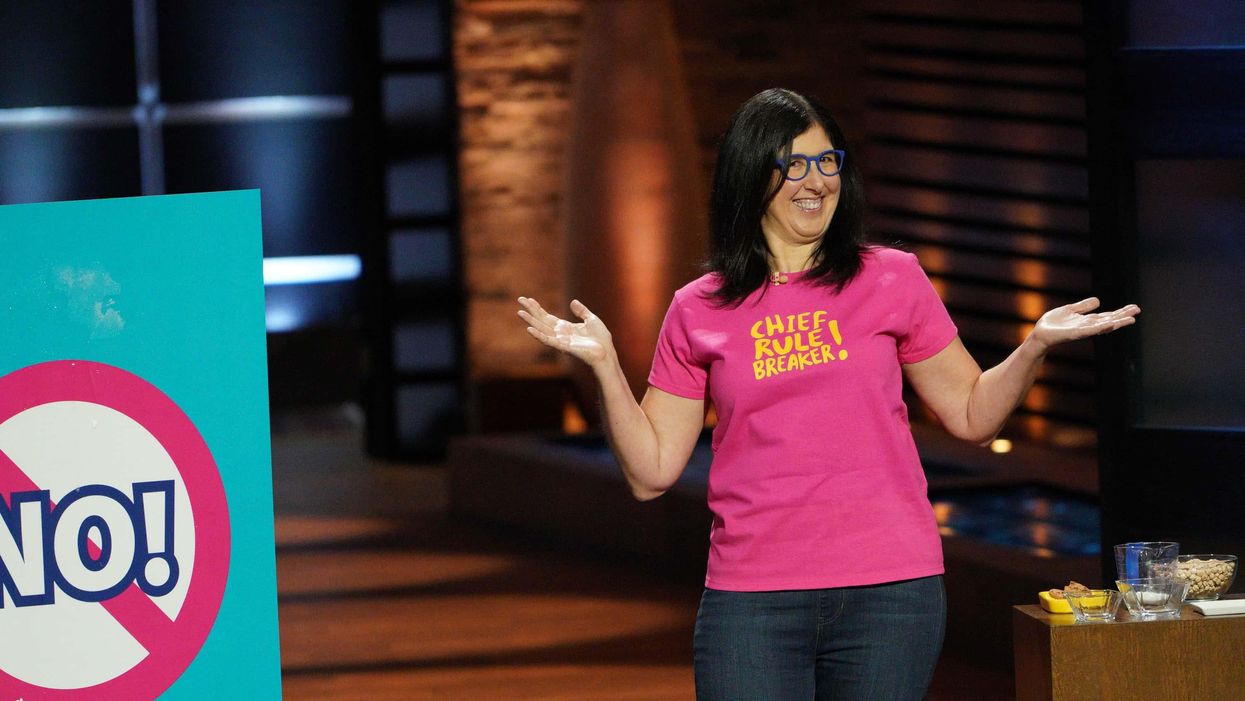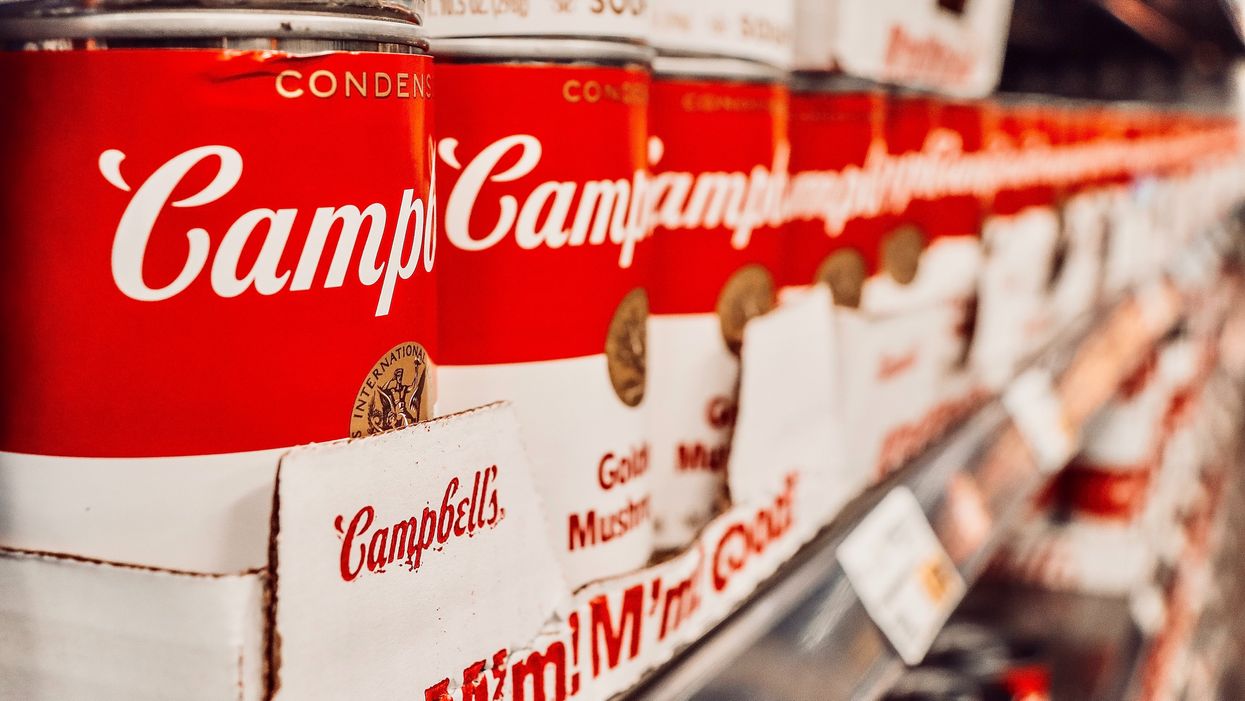When it came to eating healthy, Nancy Kalish knew the ins and outs.
As a certified health coach and health journalist writing for outlets like The Oprah Magazine, Real Simple and Prevention, Kalish spoke with hundreds of doctors, nutritionists and dietitians. Along the way, she learned the ins and outs of what foods she should be seeking out, and what she should avoid.
There was just one problem.
“I have a really savage sweet tooth,” the Brooklyn, New York, resident said with a laugh. “Learning what I should eat to be healthy didn't mean I had an easier time eating healthy.”
Her quest to kick Oreos was only made more difficult by the offerings available at health food stores. She searched for products to satisfy the her cravings, but the taste, look and feel was too…healthy.
So, being a baking enthusiast and one-time cookbook editor, she set out to create a brownie that was both healthy and tasted good.
After research that led her to pursue beans as a primary ingredient and plenty of recipe trial and error, she found the key ingredients for her brownies: chick peas. Then, she added dates as a sweetener. The brownies were a hit with everyone she knew.
In 2015, Kalish decided to bring the recipe to market. Rule Breaker Snacks was born. One tradeshow appearance at Natural Products Expo East in Baltimore later, she had her first retail accounts.
Fast forward to 2022, and the 10-employee company’s presence in retail stores has grown to 3,500 locations. Rule Breaker Snacks is also growing through ecommerce, including a direct-to-consumer model. Kalish expanded the line to include blondies and bites to go with brownies. With traction in the market, Kalish is pursuing investment to seek a new level of growth.
Here’s a look at some of the highlights of how she grew the business to date:
Standing out in the market
To enter the market, any new brand benefits from a differentiated product and a target audience. Along with natural ingredients such as chick peas and dates, Rule Breaker Snacks has plenty of other health bonafides: the products are vegan, nut-free, gluten-free, free of the top 11 allergens, non-GMO certified and kosher. Plus, Kalish said the products have one-third of the sugar of its closest competitors.
Along with consumers who are specifically seeking the particular certifications, this combination appeals to customers who are “plant-curious,” families who want a healthy snack and individuals with sensitivities such as food allergies. But to Kalish, the way to stand out in the food business is first and foremost about making a product that tastes good. The fact that the product has the chewy, fudgy consistency that consumers expect from a sweet treat further helps to heighten its appeal.
“We’re the vegan brand that even non-vegans love because it just tastes good,” she said.
That inspires loyalty, as Kalish has observed a high rate of repeat customers through ecommerce orders. As a result, she is always looking to boost brand awareness, since the customers who find the brand are satisfied.
Ecommerce growth
Rule Breaker Snacks first appeared on grocery store shelves, and the brand's presence has grown to more than 3,500 stores, including Kroger, Wegmans and Stop & Shop. It expects to grow to 4,800 by the end of 2022. The brand has also grown through including products in vegan snack boxes, as well as distributing through food service, college and universities, restaurants and hospitals. It has recently forged partnerships to appear in military commissaries throughout the US, and test with 100 7-Eleven convenience stores.
However, in-person retail is not the only channel through which the brand is finding success. Kalish believes in an omnichannel approach, and ecommerce is a key part of the company’s strategy.
Rule Breaker Snacks sells on Amazon, and is part of the ecommerce channel’s small business program, which allows it to work with Fulfilled by Amazon. It is one of the company’s most profitable channels. The presence on Amazon has raised the brand’s profile as well as sales. Through this work, Kalish was selected to be interviewed by the actress Kristen Bell during a live session in which Bell highlighted Rule Breaker Snacks.

Rule Breaker Snacks' social proof (Courtesy photo)
Given how many product searches start on Amazon, Kalish sees the channel as essential. Yet she allowed that selling on the platform is also complex. She’s a hands on founder, but has found that it’s important to work with outside experts who can assist in navigating the landscape, and recommends that founders seek that outside help soon as they can.
“Amazon is so complex that I feel like it's better not to do it yourself as soon as you can afford to make that leap,” she said.
Alongside Amazon, Rule Breaker is finding equal amounts of sales success through the ecommerce channel SnackMagic, which allows shoppers to curate snack boxes, and the wholesale marketplace Faire. It also sells through its website.
“I’m loving the fact that there are ecommerce hubs for small retailers that we can take advantage of,” Kalish said. “I think that's great and it helps us quite a bit.”
Early on, preparing the product for ecommerce required changes. It was not shelf-stable, and needed to be refrigerated. So Kalish reformulated the product to allow it to be shelf-stable, and found it to be the right step. Ecommerce and DTC makes up 42% of the company’s business, and is the fastest growing channel for the company.
An appearance on Shark Tank
In 2021, Kalish appeared on ABC’s Shark Tank to pitch Rule Breaker Snacks. Kalish said it was a thrill to pitch before the sharks, and, in turn, a national TV audience. The sharks liked the product ("Wow, I mean, wow,” Mr. Wonderful aka Kevin O’Leary said), but she did not get a deal on the show. Still, that didn’t stop the appearance from providing Rule Breaker with a boost. When the episode ran, traffic to the company’s website spiked, and sales followed in turn. The company has had many high-profile appearances in media, but Kalish said Shark Tank proved to be the biggest boost, especially since the sales upticks return every time there is a rerun.
“It’s the gift that keeps giving,” said Kalish.
While she didn’t receive a deal on Shark Tank, Rule Breaker Snacks has attracted investment. In 2021, it received a minority investment from Bimbo Ventures, the venture capital arm of Grupo Bimbo, which owns familiar baked goods brands including Sara Lee, Entenmann's, Thomas’ and Arnold. It was the first investment for Grupo Bimbo's US venture hub, and the first outside investment for Rule Breaker.
Equity crowdfunding
With growth, Kalish said the brand is seeking fuel to continue growing, especially as it seeks to continue to raise awareness about its products.
To do so, Rule Breaker is currently running an equity crowdfunding campaign to raise money. Emerging over the last decade from legal changes in the federal JOBS Act of 2012, this is a burgeoning approach to raising capital that extended the ability to make investments in companies to folks who do not meet the requirements for being an accredited investor (income over $200,000, net worth of $1 million). Kalish worked with the firm Republic, which sets up the digital campaigns where anyone can invest. It looks similar to the crowdfunding engines popularized by Kickstarter and gofundme, but in this case the backers of the campaign receive equity, or a piece of ownership, in the company.
www.youtube.com
As of this writing, the campaign has already topped its goal and raised over $100,000. With more than a month left, Kalish expects it will attract more funding.
Rule Breaker snacks is set to use the funding to fund marketing efforts that raise awareness about the company. Raising the funds through crowdfunding helps this in and of itself. By promoting the campaign page that breaks down the business, Rule Breaker Snacks is in turn marketing the business, Kalish said.
The act of fundraising is in turn achieving one of the goals of fundraising.
From journalist to founder
Looking back to the time when she started the journey from journalist to entrepreneur, Kalish allows that she didn’t initially set out to run a food business. These days, she still finds herself using the skills she honed during her time reporting, such as the writing acumen she now uses for sales materials. Yet there is one skill that remains a constant throughout her endeavors: The thing she loved most about journalism was learning something new every day, and that has continued in the food business.
“I have been learning since day one,” she said.
Related Articles Around the Web













